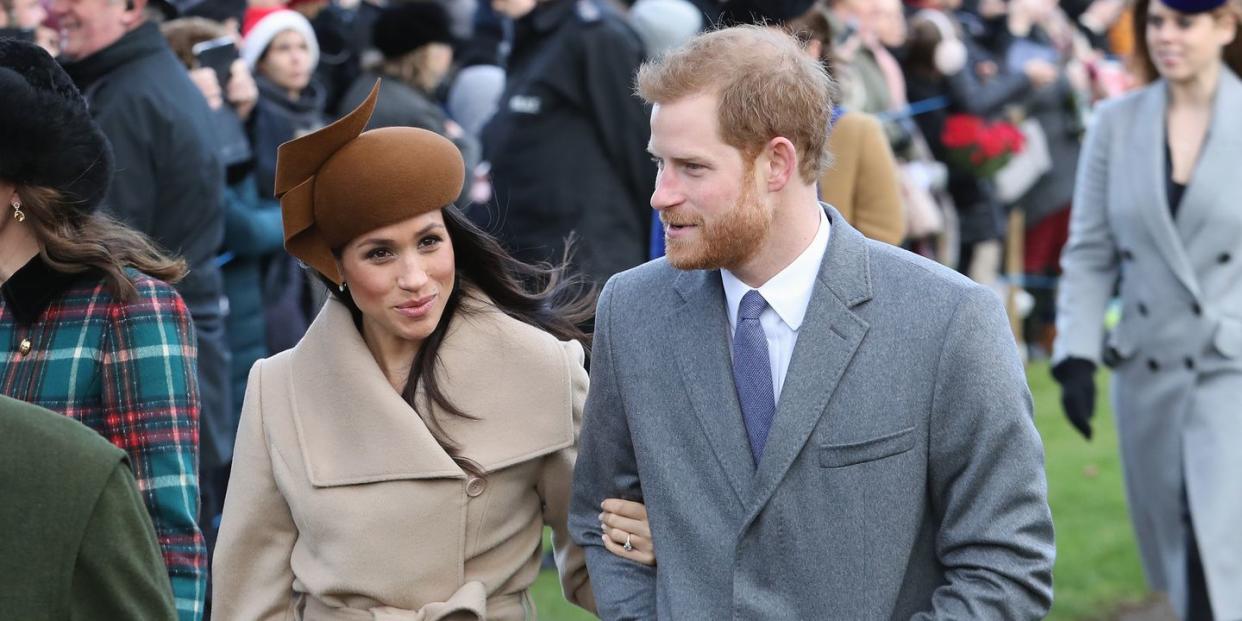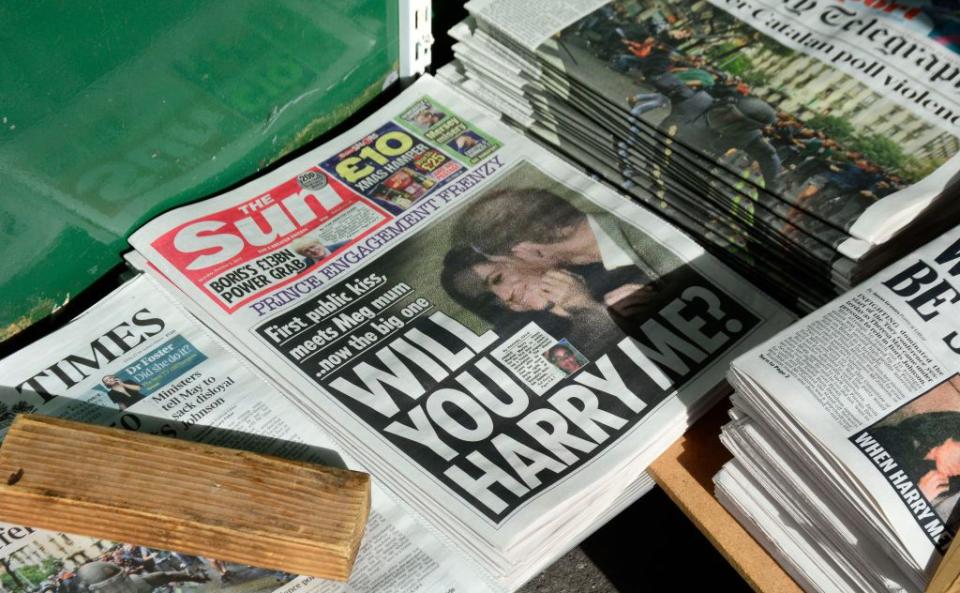The Royal Press Was Prince Harry's Enemy, But It Also Protected Him

A hatred of the media has simmered in Prince Harry for decades. For a while it was unspoken, delivered in curled lips and glowering glances at royal correspondents. Then came the eruption, first in the Sussexes' excoriating statement and legal action last October. Then, this month, came the couple’s fraught attempt to “step back” from their roles in the royal family.
The duke and duchess laid out a “revised approach” to the media at the glitzy new website they used to announce their plans. They will, among other things, “Engage with grassroots media organisations and young, up-and-coming journalists”; “Provide access to credible media outlets”; and “No longer participate in the Royal Rota system”—the core of correspondents who are invited to cover official occasions.
{% verbatim %}
A post shared by The Duke and Duchess of Sussex (@sussexroyal) on Jan 8, 2020 at 10:33am PST
{% endverbatim %}
There can be no doubt that a yearning to escape the harshest glare of the media, particularly in Britain, has driven this shift. And that desire is understandable, even for a state-subsidized prince whose role rightly requires scrutiny. But to what extent will the couple find what they seek while striking out as royal-lite global celebrity campaigners? In their apparent attempt to have their cake and Instagram it, might they even come to miss the shelter and support of the system they detest?
Meghan in particular has had a rough ride since joining the firm. And carefully selected comparisons between stories about her and Kate Middleton highlight a double standard (“Pregnant Kate tenderly cradles her baby bump”... ”Why can’t Meghan Markle keep her hands off her bump?”) But it’s worth also recalling the broad adulation that has greeted the couple. The royal rota is part of a machine that is, if anything, geared to fawn over its subjects. The British front pages were a saccharine sea of acclaim after Harry and Meghan’s wedding. Only three days before their October attack on the press, the same newspapers were celebrating the couple’s tour of southern Africa as an unbridled triumph.

Many of the correspondents who have reported at length on the Sussexes’ good causes are now, well, royally miffed. “I was disappointed by their crashing snobbery in their condemnation of certain newspapers and mentions of ones they do want to deal with,” says Richard Palmer, royal correspondent at the Daily Express newspaper, a member of the rota.
The singling out by the Sussexes of publications they have been happy to “collaborate” with, including The Daily Telegraph and British Vogue, is, Palmer tells me, “disrespectful to the many middle class and working class people who don’t buy the posh papers and magazines.” Tougher stories that initially meet with angry palace denials generally turn out to be true, he adds.
There is—inevitably—a certain rallying among a media that is itself rightly facing scrutiny. But the question remains: will this new approach succeed? “Edward and Mrs Simpson were still the object of public fascination,” Palmer says. Edward VIII, after all, married an American and stepped back from the royal family before it was cool. And it was also before the internet; ditching the royal rota and fleeing to North America won’t calm the wild west that is much of the web. Moreover, libel laws allow American news and gossip sites to say and allege more than the British media dares.

“I know several LA-based paps who are already digging out their duvet jackets and planning to relocate to Canada," Ian Kirby, a former tabloid political editor at a large London PR firm, told PR Week, an industry journal. The royal rota also makes it easier for the Sussexes to promote good causes, he added.
Nina Sawetz, managing director of Future, another PR firm, put it this way: "By detaching themselves from the Royal Family, they also detach themselves from the power, protection and authority the Royals have when they need it… Their desire for more control over press coverage is admirable, but I think they'll find quite quickly that they've actually given the press even more freedom."
Harry has himself benefitted from that protection. In 2007, the UK media agreed not to report a huge story: that the soldier prince was serving in Afghanistan. The blackout was a gesture of goodwill as well as a security measure, and only ended when the Drudge Report broke the news, forcing Harry to come home. William was similarly left alone while at university and the media has agreed to strict terms about photographs of the princes’ children.
Other concerned skeptics point to a more recent example than Edward of a royal who, in very different circumstances, left the royal family to become a celebrity champion of good causes while attracting perhaps even more press attention—good and bad: The Princess of Wales. In following in his mother’s footsteps, be it through Angolan minefields or a shifting media landscape, Harry has shown he is prepared to take that risk.
You Might Also Like

